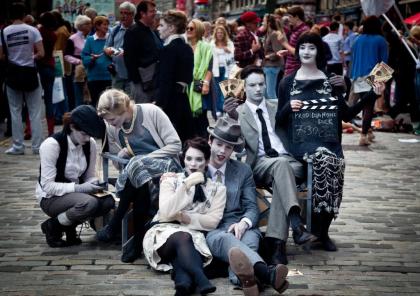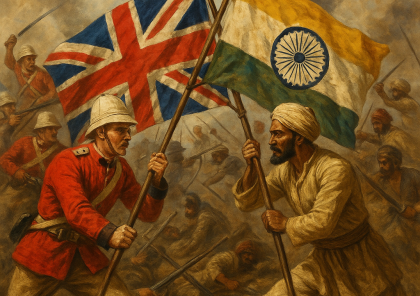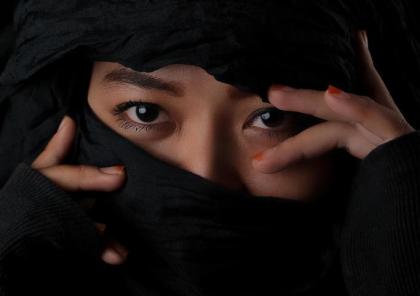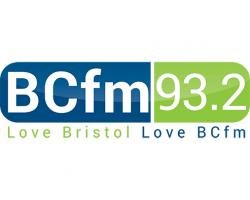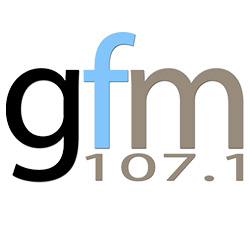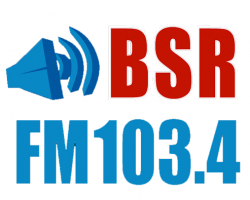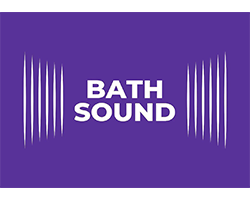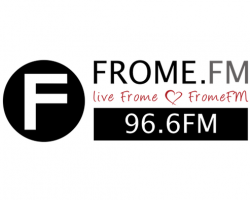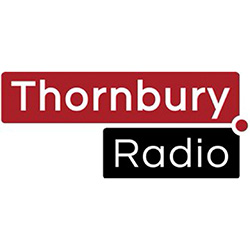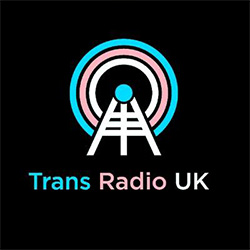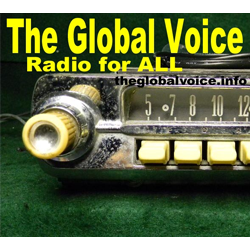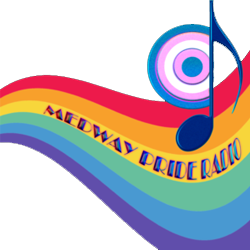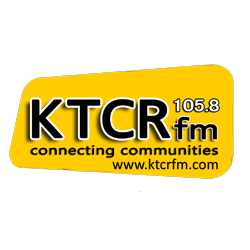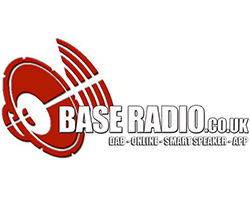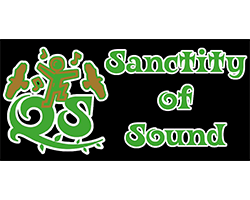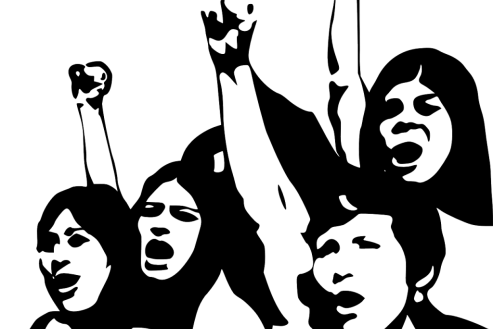
29/05/2020
On the ShoutOut programme first broadcast on Thursday 28th May, we looked back at the thirtieth anniversary of the LGBTQ Direct action group "OutRage!".
The period between 1987 and 1996 is often classified by sociologists, political students and followers of gay politics as the “New Queer Activism”. It is bracketed by the beginning of the fight back over AIDS and the eventual beginning of Highly Active Anti-retroviral Treatment, a new approach to HIV management which slashed the death rate in European countries and the rest of the developed world.
Britain in 1990 was still characterised by high levels of homophobia, although there were promising signs that the attitudes of young people were going to be significantly different from previous generations. Just two years previously, the hated Section 28 of the Local Government Act was passed into law, prohibiting local authorities from offering services to LGBTQ people, by dint of a wide ranging clause that specified that they should not “intentionally promote homosexuality”. On the other hand, the Clause served, in the words of one social commentator, as the British gay public's “Stonewall Moment”. Indeed, in 1988, the Stonewall lobby organisation was founded and was from the start closely associated with Ian McKellen, who had come out publically in a debate on BBC Radio Four that year. Fifty thousand people marched in Manchester, and lesbian activists abseiled to the floor of the House of Lords in one of the most memorable moments of activism ever attempted in the UK. Rebellion was in the air in the eighties and nineties: not just for the gay community: New Age Travellers were defending the seventies counterculture of illegal free festivals, and had been joined by a new culture causing moral panic – the rave scene of free parties. Reform was sweeping across Eastern Europe as the Stalinistic communist regimes began to crumble. The environmental movement came of age, with strong votes for ecological parties at the 1989 Euro Elections. More than two hundred unlicensed radio stations were broadcasting across the British Isles. And Mrs Thatcher was set on implementing a Poll Tax on every adult in the UK, a move which would lead to riots, mass refusal to pay, civil disobedience and ultimately the downfall of her long standing premiership.
It was against this background that OutRage! Was formed in early May 1990. The impetus was the savage kicking to death of Michael Boothe, a young gay actor. Keith Alcorn, Chris Woods and Simon Watney called a meeting attended by thirty five people at the London Lesbian and Gay Centre. Watney had already been highly active in grass roots campaigns in HIV and AIDS and in 1986 had been profiled by London's shortlived but influential pirate television station Network 21. Other people lending their support to the new group were Peter Tatchell, who was already a publically known figure. He had been active in the Gay Liberation Front in the early seventies and in 1983 had fought the Bermondsey By Election, which was one of the most viciously homophobic in British Parliamentary History.
In the event it was Keith Alcorn who came up with the name “OutRage”, designed to capture the outrage the group intended straight society to feel as it gave expression to LGBTQ anger. But anger of itself was not enough. Taking their gay history seriously, the group agreed to Peter Tatchell using his experience to draft a set of demands by way of what in the corporate world is called a “Mission Statement”.
The statement went:
OutRage! is a broad based group of queers committed to radical, non-violent direct action and civil disobedience to:
- ASSERT the dignity and human rights of queers
- FIGHT homophobia, discrimination and violence directed against us
- AFFIRM our right to sexual freedom, choice and self-determination
The commitment to non-violence would be essential in the group keeping the moral high ground even whilst being attacked by the British press, which at the time, were dominated by anti-gay journalism. One gay activist half joked that if OutRage! had not come along with its pacifist principles, he might have started copying the tactics of the highly underground wing of the anarchist green movement such as the Animal Liberation Front, or the Welsh militant Meibion Glyndwr, all involved in arson attacks in the eighties.
The first OutRage! action was on 7 June at Hyde Park Public Toilets to protest against Metropolitan Police entrapment of gay men cruising, and attracted some media attention. Wikipedia remarks that One of the defining images of OutRage! actions was taken in September 1990 when the group organised a "kiss-in" at Piccadilly Circus to protest against arrests of gay men for kissing in public. One member, identified as an actor called Richard, climbed up and kissed the statue of Anteros. This image was later turned into a fundraising postcard that was sold in gay and alternative bookstores.
OutRage! Was inspired by a number of other campaigns from history, and its more intellectual members spoke of their debt to the suffragettes, the suffragists, the ecological, workers and black civil rights movements as well as the rich history of LGBTQ activism.
The group also had fraternal and sororal links with Queer Nation, a US based network of militant urban LGBTQ activist groups who had emerged from the milieu of ACT-UP and some branches of feminism during the early nineties. Queer Nation differed from OutRage! In that it was less directly focussed on gay activism. Queer Nation did for example join with the left and peace movement in denouncing the Iraq war of 1991, but OutRage! made no formal statement.
Where both Queer Nation and OutRage! hit snags however, was in the field of “outing” celebrities, politicians and clergy. Outing refers to the involuntary publicising of the sexuality or, in trans politics, of the transgender identity of a public figure who was moving under the radar. It is not new – some of the early homophile activists of the nineteen fifties actually toyed with the idea, even whilst their magazines and newsletters were already difficult to distribute through the US postal system. But in the very radical gay magazine OutWeek, formed in June 1989 to reflect the cool and stylish ethos of the new queer activism, outing became an essential read each week. Michaelangelo Signorile, who today is a presenter of gay programming on Sirius XM Radio on satellite platforms, cut his teeth with a “GossipWatch” column which was not afraid to name the sexuality of the closeted. In their book Outing: Shattering the Conspiracy of Silence, Warren Johansson and William A. Percy state that "OutWeek's bold moves marked a new phase in the struggle to tear down the closet door.
Queer Nation was divided on the issue, as would be the spin off all lesbian group, the Lesbian Avengers, which started taking action in the US from 1992. Some activists felt that there simply was no right to the closet and that all LGBTQ people had a moral responsibility to come out. But others advocated a more ethically focussed sort of outing, arguing that if a public figure was condemnatory of homosexuality but secretly enjoying a gay life, then there was a public interest in exposing that person's hypocrisy.
In the United Kingdom, OutRage! was more expressly interested in the ethical stance on outing, and broadly left alone public figures who were closeted but made no statement about sexuality. That did not stop some deep splits developing. Some people felt that outing was a step too far, others just grew tired that the OutRage group's many other strands of activism were often eclipsed, even in the gay media, by the outing issue.
In 1991, some activists loosely associated with OutRage!, but in no way formally sanctioned by the group, put up some flyposters in Central East London and around the then developing gay villages, which depicted the pop singer and pin up Jason Donovan wearing a gay rights T Shirt. This image was later published in the pages of the fashion monthly The Face. Mr Donovan sued the Face a magazine which incidentally which was not gay operated but had always been sympathetic to the stylish London gay scene. In May 1992, the High Court ruled in Donovan's favour and awarded significant damages against the magazine. Many gay people felt that the court case had sent the wrong message about homosexuality and their activism, and a support fund was set up to help The Face in an echo of the famous “Gay News” trial of 1977. Mr Donovan meanwhile found it hard for a while to build bridges with the gay communities, many members of which felt that he had been homophobic in taking his legal action.
Once again, outing had ended arguably harming the gay community, but this is hotly debated to this day.
OutRage had a very complicated relationship with the rest of the activist movement. The hard left, in a myriad of groups such as the Socialist Workers Party, the Militant Tendency, Communist Party and Workers Revolutionary Party, had their own sordid history with homophobia, and although they had by 1991 mostly reformed their own policies, they never understood the need of OutRage to focus exclusively on LGBTQ freedom. In 1992, one of the far left groups, the Lesbian and Gay Campaign against Racism – known as LAGCAR sent many of its activists into OutRage! In an effort to win the gay group to a wider agenda of socialist policies. OutRage! resisted this and took the step of abolishing the semi autonomous affinity groups: a strategy learned from the anarchist movement which was then proving very successful in the deep ecology and anti-roads building movements. One of the women led affinity groups voted against this reform however, and shortly afterwards left to form the London Chapter of the Lesbian Avengers. Relations between the Avengers and OutRage! Remained cordial however, and many women were active in both networks. In 1994, just a few months after large demonstrations over Parliament's failure to enact an equal age of consent for young gay men, both OutRage! And the Lesbian Avengers joined forces with the wider counterculture to protest the Criminal Justice Legislation which was targetted at travellers, protest groups and the rave scene. This might seem an unlikely alliance, but for the LGBTQ activists, the issue was one of civil liberties which were of direct relevance to lesbians, gay men, bi and trans people.
For trans people, there was some representation in OutRage!, but the group did not actively campaign on issues that were of key relevance to transgender people. In the United States, a similar frustration with Queer Nation led to the evolution of another breakaway group, the Transgender Menace. In Britain, however, trans activism through the nineties remained with the more moderate Press for Change and informal social networks.
In 94, OutRage! Backed by the Lesbian Avengers, took action in which they named eleven bishops within the Church of England hierarchy whom they said were hostile to homosexuality in public whilst still enjyoing the benefits of gay life themselves. The action was condemned by the tabloid papers, despite the fact that they were not above outing clergy themselves as long as it suited their anti-gay agenda. Nevertheless, the Lesbian and Gay Christian Movement, a moderate reforming organisation which is today called One Body One Faith, remarked that doors previously closed to the group by senior figures in the church were now flung open. A major blow to Anglican homophobia was struck, but some observers also felt that in other, more hostile and conservative denominations, anti-gay feeling was actually exacerbated by the action. An even more provocative act was to peacefully disrupt the Archbishop of Canterbury's Easter Sermon in 1998, live on national television. Again, this divided opinion within the gay community, between many who applauded the action to draw attention to Doctor George Cary's support for damaging anti-gay psuedotherapies and some gay people who felt embarrassed to see the disruption, particularly if they were a person of faith. The long lasting consequences of the action are still debated, but Doctor Carey's successors as Archbishop have all been more gay friendly than his tenure.
In the last few years of its active existence, OutRage! Became a major contingent in the Equal Marriage campaign network Freedom to Marry. Here its work included bringing legal briefings in favour of not only homosexual couples wishing to enter into a state sanctioned marriage, but also heterosexuals who were excluded from civil partnerships. It was an interesting twist for a group that had started life focussed predominantly on LGBT self determination, but also very much in keeping with its historical message of equality.
It would be impossible for us to name all the actions that took place through OutRage's long history, because the group only stopped actions in 2011 after so many changes in British society had been achieved. However, it has a very active and regularly updated website at Outrage.org.uk, where you can browse documents, and briefings, photographs and emails, and enjoy reliving those years of revolution and activism.
https://theface.com/life/outrage-lgbtq-rights-campaign-group
https://www.gaytimes.co.uk/community/135088/the-mission-statement-of-out...
https://www.gscene.com/news/outrage-30-years-of-defiant-queers/
https://www.petertatchellfoundation.org/outrage-30th-anniversary-of-quee...
https://www.pinknews.co.uk/2020/04/30/michael-boothe-gay-murder-lgbt-out...
https://www.petertatchell.net/lgbt_rights/outrage-30th-anniversary-of-qu...
In conclusion, we will quote from the OutRage website: Thousands of brave, determined, inspiring, selfless volunteers contributed to OutRage!’s successes for more than two decades. They, collectively, made an extraordinary positive impact on public attitudes, values, institutions and laws in the UK – and sometimes abroad too, through international campaigns, such as Stop Murder Music. We responded to appeals for help from LGBT groups worldwide and acted in solidarity with their freedom struggles. Bravo!
Questions for the Panel:
Where if anywhere is political militancy needed in advancement of LGBTQ rights? Groups like Trans Media Watch are daily outlining misreporting, villification and downright hatred being exhibited towards an essential and key component within the LGBTQ rainbow nation. Do you think that a trans direct action group would work?
Many other groups have been founded as a result of OutRage!. Some came and went such as the Welsh language group Dicclon, but others have stayed around, like Gay Men Fighting AIDS, now known as gay health charity GMFA. What do you think of the impact of direct action on the wider gay political sphere?
Have you taken part in a gay, trans, bisexual or intersex protest, and how did you find it?

